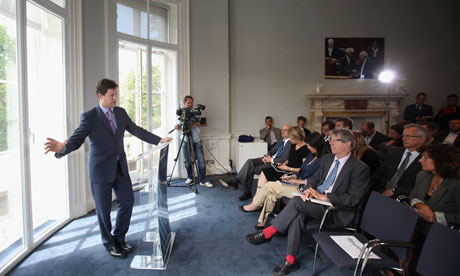
“When journalism is treated as just another widget in a commercial enterprise, the focus isn't on truth, verification or public good, but productivity and output. Spending years on a story, whether to investigate MPs' expenses or phone hacking, doesn't make business sense. If we are serious about wanting this type of journalism, we have to make it easier and more cost-effective to access information legitimately.
“Instead, journalism in Britain is a patronage system—just like politics. It is rare to get good, timely information through merit (eg by trawling through public records); instead it's about knowing the right people, exchanging favours. In America reporters are not allowed to accept any hospitality. In Britain, taking people out to lunch is de rigueur. It's where information is traded. But in this setting, information comes at a price.
“This is why there is collusion between the elites of the police, politicians and the press. It is a cartel of information. The press only get information by playing the game. There is a reason none of the main political reporters investigated MPs' expenses – because to do so would have meant falling out with those who control access to important civic information. The press—like the public—have little statutory right to information with no strings attached. Inside parliament the lobby system is an exercise in client journalism that serves primarily the interests of the powerful.”
@The Guardian

No comments:
Post a Comment